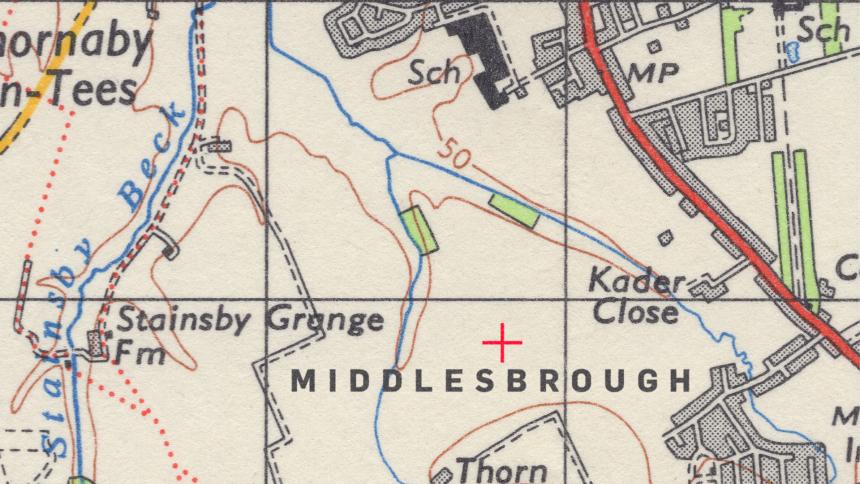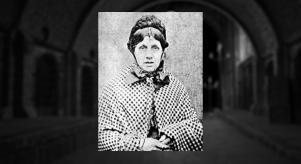
Middlesbrough: crime profile
Katherine Kelly is back for the new series ofMurdertown, a hard-hitting series looking into crimes that have shocked different communities across the UK. Featuring interviews with detectives, reporters and the victims’ loved ones, the episodes provide detailed portraits of murders and their aftermaths.
In Middlesbrough, Katherine delves into two separate but equally startling cases. One is a chillingly motiveless murderer perpetrated by Reginald Wilson, who carried out the killing of a respected doctor simply to satisfy his inexplicable bloodlust. The second is the case of Steven Hodgson, a burglar who ‘graduated’ to murder using Google to plan his lethal assault on an unsuspecting victim.
The dark truth is that Teesside – the conurbation which includes Middlesbrough – has seen many shocking killings in living memory. In January 2019, it was reported that the murder rate in the region had risen to the highest in more than three decades. One of the most striking cases of recent years involved a murderous Middlesbrough pharmacist and his plan to start a new existence at the expense of his wife’s life.
To those who knew them, Mitesh and Jessica Patel were a happily married couple, running a successful pharmacy in town. But behind the façade, Mitesh was hatching a plan to kill his wife and use the insurance payout to relocate to Australia, where he could be with a man he’d fallen in love with.
The 37-year-old Mitesh had long been seeing men on the side, using the gay dating app Grindr to arrange hookups, sometimes bringing men back to the pharmacy after hours. He was also a bizarre fantasist and liar, inexplicably telling people that Jessica was a dentist (she wasn’t) and that they had kids (they didn’t). Things took a darker turn in 2018, when he made Google searches such as ‘Would it be painful to die from an insulin overdose’ and ‘Can injecting a huge overdose of insulin kill a healthy person’.
He would indeed use insulin to incapacitate Jessica, before choking her to death with a plastic bag and ransacking their home to make it look like a burglary gone wrong. Then, in a vain attempt to create an alibi, he went to a local pizza shop where he ordered food and cheerily shook hands with someone working there.
His lies were undone by CCTV footage which contradicted his account of his whereabouts during the critical hour of his wife’s murder. The case also saw the first time a health app on a mobile phone was used as evidence in a murder trial. Mitesh Patel’s app, which monitored how many steps he was taking and whether he was climbing stairs, revealed his uncharacteristically frantic movements that day.
All the evidence helped put the killer behind bars, where he is now serving a minimum of 30 years.
The Patel case is disturbing, yet at least had some kind of rationale behind it. Back in 1970, another murder was carried out in Middlesbrough – this one without any motive at all, horrifying the entire community.
The culprit was a young man named Eric Yale, a labourer who was by all accounts something of a misfit. In the weeks preceding the murder, he was spotted sitting in a club in the town centre, nursing bottles of cola and refusing to talk or dance with anyone. One fateful night, he did strike up a conversation with a woman, who invited him to a house party.
The party-goers fled the house in horror, tragically forgetting that sleeping upstairs were two infants
It was at this party that Eric Yale went abruptly berserk, grabbing the arm of a chair and using it to attack the people in the house. Speaking afterwards, Yale implied he himself didn’t know what had taken hold of him. 'When I stood up everything was red and going around,' he said.
The party-goers fled the house in horror, tragically forgetting that sleeping upstairs were two infants whose mother wasn’t home at that point. Yale, in the grip of his mania, stalked upstairs, where he beat one baby to death in his cot and left the other one seriously injured.
Yale went on the run but was captured a few days later, eventually sentenced to life in prison for a crime which defied all reason and meaning.
Described by a local reporter as ‘one of the foulest crimes that has ever defiled the annals of our local history’, the murder of Mary Cooper was a Victorian scandal which rocked the region in 1884. Much of the outrage was fuelled by the fact Mary was just eight years old: an innocent child playing hide and seek in the park with her sisters when she vanished into thin air.
A vast search took place, as the community came together to track down the missing girl. It was futile, and days later two boys playing on a local cricket field found Mary’s body in some bushes. Her throat had been cut, leaving her caked in her own blood. Her mother, who’d been part of a search in a different part of the region, learnt that her daughter was dead when she overheard gossip on a tram back to Middlesbrough. Her child’s body was waiting for her in her living room, surrounded by police officers, when she arrived home.
Hundreds of mourners lined the streets for Mary’s funeral, while a desperate hunt ensued for the person one newspaper called a ‘fiend in human form’. A number of tramps were arrested, including one man who was described in an article as ‘a half-witted man who for some weeks has been singing ballads in the Middlesbrough market-place’. He was later released, and local police even begged for the help of Scotland Yard officers, who arrived with a bloodhound to sniff out clues.The killer was never found, and the tragic story of Mary Cooper is now an obscure and fascinating part of Middlesbrough lore.
WatchMurdertown: Middlesbrough, Monday 30th September, 9pm.






